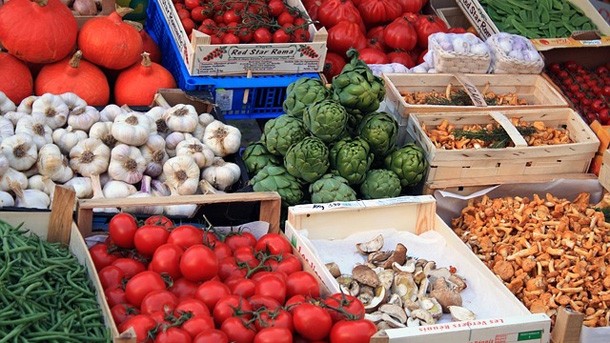ASK THE EXPERTS
How to ensure a sustainable supply chain

Ensuring a transparent and sustainable supply chain is now more vital than ever in the hotel and restaurant business. The media’s continued interest in the ethical sourcing of products means consumers are increasingly aware of this as well, highlighting the need to take action and ensure that your supply chain will withstand scrutiny.
Protecting your reputation
In the wake of recent food provenance scandals, businesses have become aware of the impact a complex and opaque supply chain can have on their corporate reputations. These scandals generated negative press for many businesses, in turn causing consumers to consider their other options and leaving brands with a tarnished corporate reputation. In light of this, some businesses have revaluated their supply chain processes to ensure increased transparency.
However, more can still be done. Take, for example, the recent announcement that McDonald’s in the US will stop using chickens fed on antibiotics. Though on the surface a step in the right direction, this news caused consumers to question just what is going on in the supply chains of their favourite retailers and restaurants, demonstrating that a sustainable supply chain can improve and protect your corporate reputation.
Analysis and initial action
Identifying where there are potential problems and reputational threats is a vital first step and creating a comprehensive assessment system for suppliers will be central to this. This will increase the transparency of your supply chain and ensure minimal risk to your corporate reputation. One way to do this is through a partnership. Considering working with an organisation or charity, such as the Rainforest Alliance, can add credibility to your business’ claims of sustainability. Certifications and partnerships are used regularly by consumers to help identify sustainable sources, how their products were produced and where their products have come from.
Developing guidelines
Regardless of whether you are working with a partner or not, it is then important to develop a strategy and guidelines for sustainable practice. At Whitbread we have developed Responsible Sourcing and Commodity Policies that we urge suppliers to meet and we work with those suppliers who do not meet our high standards. Taking a collaborative approach with our suppliers has been beneficial and is helping us to increase our knowledge of our supply chain.
Working together with suppliers
Once you have created guidelines, you will want to ensure that your suppliers meet them. Through our automated system, developed with CRedit 360, suppliers are asked to input detail relating to the source of their products. For example, the supplier of our disposable cups will be asked about the labour used within their supply chain and where the timber used to create the cups was sourced from. Following the assessment, the supplier will be given a grading.
Green indicates a supplier fully meets Whitbread’s policy requirements and may only require improvement action plans. Amber indicates a supplier requires corrective action plans to ensure that they meet Whitbread’s policy standard, and finally red indicates that a supplier audit is required. This system ensures that we are working with suppliers who share our belief in responsible sourcing, helping to safeguard the environment and communities with which we work and thus reducing the reputational risk to our business by creating a transparent, sustainable supply chain.
Steps to sustainability
Supply chains are long and complex so while the importance of a sustainable supply chain is clear, many businesses find it difficult to put new strategies into practice. At Whitbread, we have found our collaborative approach highly effective and I would suggest that other businesses take inspiration from this approach. Smaller steps such as a quick quiz for suppliers demonstrating how much they know about the source of their product will be illuminating. Suggesting ways in which your suppliers can improve their supply chain will then ensure that you are working together to create more responsible practices that work for everyone.

































